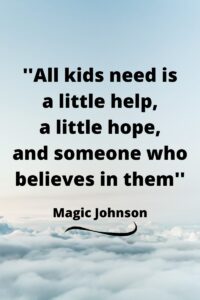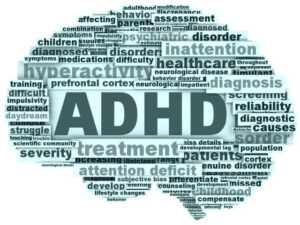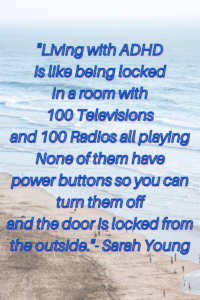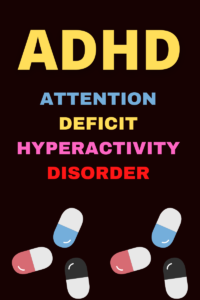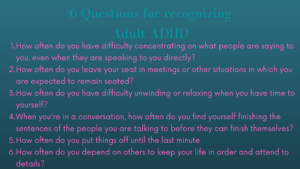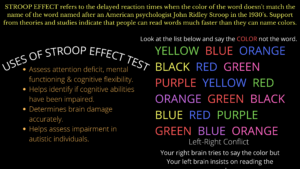October Is ADHD Awareness Month
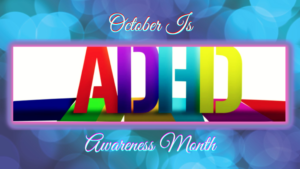
October is ADHD (Attention Deficit Hyperactivity Disorder) awareness month. I have a personal investment in this disorder as it is something that I have been battling with my son for the past sixteen years. My son does not only have ADHD/ADD (Attention Deficit Disorder) but also Dyslexia.
At the time of my son’s diagnosis, I was not very knowledgeable on the subject. Most of what I discovered was through trial and error. I made the blunder of refusing to put him on any medication. I have regretted that immensely.
He is now a teenager, and his mood swings have become erratic and sometimes uncontrollable. He has an immense amount of anger inside of him. I find that he hates socializing, and too many people make him feel uncomfortable.
Where once he was a quiet and reserved person in the company of others, he now is like a powder keg just waiting to blow up. I am the only one that can ‘talk him of the ledge,’ so to speak.
Because he also has a learning disability, he has grown up to be a very frustrated individual. He sees himself as less in the eyes of others.
He doesn’t comprehend and understand when someone would say something in jest. He often takes it as they are mocking him.
He is not violent towards anybody, but he does tend to go into a rage and destroy anything that is accessible to him. Unfortunately, his room takes the brunt of his anger. Once he left the house and we spent an hour trying to find him. When we did, he was walking along the highway about a kilometer away from home.
Millions of children, teens, and adults have been diagnosed with ADHD globally. In most cases, there would be the presence of one or more additional conditions co-occurring with this primary condition called comorbidities.
What is ADHD
ADHD is a chronic condition including attention difficulty, hyperactivity, and impulsiveness. It is a complex neurodevelopmental disorder that can affect a person’s learning and relationships.
Signs of ADHD in children
* Self-Focused Behavior
A common sign is a child’s inability to identify other people’s needs and desires that often lead to interrupting and having difficulty waiting their turn.
*Interrupting
Because of their self-focused behavior, a child with ADHD will disrupt a conversation while others are talking and insert themselves in games that they are not part of
*Trouble Waiting Their Turn
Children with ADHD have trouble playing games with other children. They have a tendency not to wait their turn.
*Emotional Turmoil
ADHD children have a struggle keeping their emotions in check. They can have eruptions of anger at any given time.
In younger children, they can have temper tantrums.
*Fidgeting
ADHD children very often are unable to sit still. They become fidgety when required to sit and would start fidgeting. You will notice that they like to run around a lot.
*Problems Playing Quietly
Children with ADHD have problems playing quietly. Because they fidget so much, they cannot remain still.
*Unfinished Tasks
Children with ADHD find lots of things that interest them, but they may have problems finishing them. They lose interest very quickly and will often move on to something else that catches their attention.
*Lack Of Focus
A child with ADHD will have a hard time paying attention. Sometimes you can be talking to them directly and, it would seem as though they cannot hear you. For example, if they are watching T.V, you can be seated next to them and even scream to get their attention, and it would be as though they never heard you.
*Avoidance Of Tasks Needing Extended Mental Effort
When a child lacks focus, they cannot pay attention in class or do their homework. These tasks require them to concentrate which, they find hard to do.
*Mistakes
Children with ADHD have trouble following instructions. Any task that requires planning and execution can be a problem for them. Not because they are not intelligent enough to complete them but rather because they don’t follow it through till completion and, as a consequence, make mistakes.
*Daydreaming
We always associate hyperactivity as the most significant sign, but in retrospect, children with ADHD have periods where you will find them quiet and in a state of daydreaming. They would stare into space and often ignore what’s happening around them.
*Forgetfulness
Children with ADHD are very forgetful. They may forget to do their homework or chores assigned to them. They misplace stuff and will forget where they left their book or toys.
Most often, ADHD in children will follow into the teenage years and then adulthood.
The transition from childhood to adolescence, or the teenage years can be daunting and grueling for both the teenager and the parents.
During this transition, the child will go through many changes like physical, intellectual, personality, and social development. Not to forget the emotional ”roller coaster ride” they are constantly on. It is also a time when they reach puberty. Their bodies change physically, and they start to explore their sexuality.
This phase of their life is also a time where there is essential brain growth, especially in the frontal lobe. The frontal lobe is the region that involves the supervisory function skills like problem-solving, conflict resolution, planning, and impulse control.
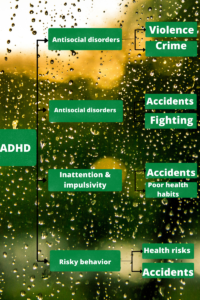
It is a process that starts in the teenage years and continues until about the age of 25. School becomes more taxing as the demands academically become more demanding.
This and more is what happens to anyone that is entering adolescence. Now add ADHD into that mix and, it will be like adding fuel to an already raging inferno.
Teens with ADHD are more prone to problems and, some of them could be dangerous and lead them along a path that they might find arduous navigating their way back from, like:
Drug And Alcohol Abuse
Teens, need to belong puts them at a higher risk for alcohol and drug abuse. Sometimes we as parents expect our children to behave in a certain way. We concentrate more on what they are doing wrong and, most often, reprimand their behavior and actions, thus putting them in a precautious situation.
Often they will feel like they cannot talk about what they are going through with us and either turn to alcohol and drugs as a means of escape or be attracted to people that offer them this means.
The three leading causes of death in adolescents are accidents (unintentional injury), homicide, and suicide. Sadly, alcohol is often associated with each cause. No research explicates an affiliation with alcohol use in teens with ADHD compared to their peers without it.
Teens with ADHD may be impulsive, risk-taking, immature in judgment, and thrill-seeking. All of these traits make accidents and serious injuries more likely.
Teens with ADHD are more likely to be heavy drinkers than teens without ADHD.
Some signs to look out for:
- Sudden and dramatic mood changes, particularly after a night out with friends.
- Red or heavy-lidded eyes with dilated pupils
- Deceit and secretiveness; stories that do not
- add up
Car Accidents
One of the most exciting times for a teen is when they get their license to drive. It gives them a sense of freedom and accomplishment. For a parent, it is a frightening time. It is because we are so used to cajoling them and protecting them. With children with ADHD, this poses more challenges.
Research suggests that untreated ADHD is more likely to impair a driver’s ability. Due to distractibility, inattention, and impulsivity correlated with this condition. While some teens with ADHD are very cautious drivers, a few may not be ready to manage driving safely.
High impulsivity and emotionality may indicate that a child is not fit for this responsibility. Parents need to have a more hands-on approach in this matter. It can be a frightening notion to allow them to take this step, and on the other hand, it can be beneficial to them as well. ADHD can be managed and treated. That is why if you suspect that your child displays signs, you need to have them evaluated and treated.
Increased Sexual Activity And Teenage Pregnancy
It is challenging for a parent to address the topic of the birds and the bees. Sex-ed is a touchy subject and, parents find it hard to approach this subject with their teens. It becomes a discussion that many parents find awkward, and they try to avoid it, and in some instances, it is.
Numerous studies have linked attention deficit to a higher rate of teen pregnancy, promiscuity, and STIs. In addition, children with ADHD typically trail behind their peers by three years regarding social maturity. That is why parents need to talk to their teens about their sexuality in a way that is open, honest, and free of judgment.
Adult ADHD
Adult ADHD can lead to unstable relationships, poor work or school performance, low self-esteem, and other problems.
Though it’s called adult ADHD, symptoms start in early childhood and continue into adulthood. Adult ADHD signs may not be as easy to spot as ADHD symptoms in kids. In adults, hyperactivity may decrease. However, strifes with impulsiveness, restlessness, and difficulty paying attention may remain.
Symptoms
Some people with ADHD have fewer symptoms as they age.
Many adults aren’t even aware that they have ADHD. They find that everyday tasks can be a challenge. Adults with ADHD may find it arduous to focus and prioritize. The incapability to manage impulses can range from impatience waiting in line or driving in traffic to mood swings and eruptions of anger.
Adult ADHD symptoms may include:
- Impulsiveness
- Disorganization and problems prioritizing
- Poor time management skills
- Problems focusing on a task
- Trouble multitasking
- Excessive activity or restlessness
- Poor planning
- Low frustration tolerance
- Frequent mood swings
- Problems following through and completing tasks
- Hot temper
- Trouble coping with stress
When to see a doctor
If any of the symptoms listed above continually disrupt your life, talk to your doctor about whether you might have ADHD.
Adult ADHD is associated with:
- Poor school or work performance
- Unemployment
- Financial problems
- The trouble with the law
- Alcohol or other substance misuses
- Frequent car accidents or other accidents
- Unstable relationships
- Poor physical and mental health
- Poor self-image
- Suicide attempts
About 80 percent of those with ADHD are diagnosed with at least one other psychiatric disorder sometime during their life. The most common ADHD comorbidities are:
learning disabilities, anxiety, depression, sensory processing disorder, and oppositional defiant disorder.
- Language disabilities
- Fine and gross motor difficulties
- Executive function difficulties
- Learning disability
- Anxiety disorders (including panic attacks)
- Anger-control problems (intermittent explosive disorder or oppositional defiant disorder)
- Obsessive-compulsive disorder (OCD)
- Bipolar disorder
- Depression
Note that depression can cause a spectrum of symptoms exceeding sadness and thoughts of suicide. These include:
- irritability
- reduced interest in activities that used to be pleasurable. Sleep disturbances.
- decreased ability to concentrate
- indecisiveness,
- agitation or slowness of thinking
- fatigue,
- loss of energy, and feelings of worthlessness
- inappropriate anger.
My Final Thoughts
This article has been one of the most challenging posts that I had to produce. It took me a long time to complete it. As I researched the subject, I grew increasingly despondent.
You see, I was so sure about the choices and decisions I made when it came to my son and managing his ADHD and Dyslexia. If you have read my previous post on learning disabilities, you would see the confidence I had in my decision-making. Like I said before, my biggest regret is not putting my son on medication.
As he is transitioning into early adulthood, I am facing the consequences of my actions. He is becoming more impulsive and reckless in his behavior and is developing anger issues that are growing unpredictable. I am afraid of the future as now I know the consequences of him not being on medication and what having behavior therapy could mean for him as an adult.
With millions of people diagnosed with this condition globally, I am surprised how little people know about it. Undiagnosed, untreated attention-deficit/hyperactivity disorder can wreak havoc on your life, and it can also impact your loved ones. Without ADHD awareness, many children and adults continue to struggle. ADHD awareness should not only be for one month but all the time.

